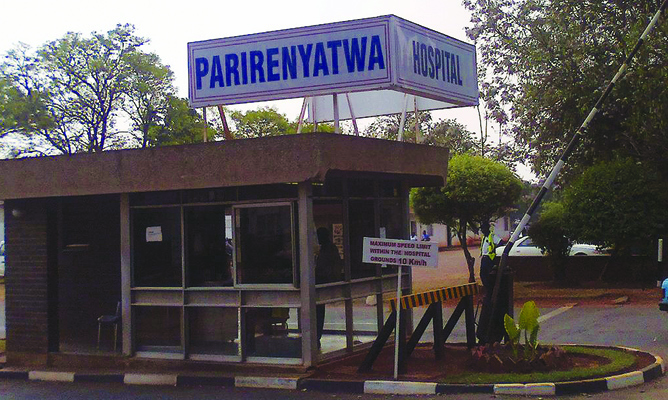
BY VENERANDA LANGA
DOCTORS at Parirenyatwa Group of Hospitals have asked Parliament to intervene and investigate the issue of a private pharmacy within the hospital’s premises, which is competing with the hospital pharmacy and creating loopholes for corruption.
The issue came out when the Ruth Labode-led Parliamentary Portfolio Committee on Health visited Parirenyatwa to conduct investigations into a petition which was sent to Parliament on December 4, 2019 by the Zimbabwe Senior Hospital Doctors Association.
The doctors’ grievances included concern over the deteriorating situation at all public health facilities in Zimbabwe and administrative lethargy in solving those challenges by the Health and Child Care ministry.
One doctor, who refused to be named fearing victimisation, told Parliament that at Parirenyatwa, there is a private pharmacy called Devine Pharmacy, which is charging patients exorbitantly and is always well-stocked compared to the hospital’s pharmacy.
He said it was not good corporate governance practice for a private pharmacy to be situated at public hospital premises.
“We have Devine Pharmacy in the hospital premises and we do not know who owns it,” the doctor said.
“But we have noticed that drugs can be out of stock at the hospital pharmacy, but are always available at Devine Pharmacy, which is also very expensive and that translates to doctors failing to give optimal care to patients and patients die,” he added.
- Chamisa under fire over US$120K donation
- Mavhunga puts DeMbare into Chibuku quarterfinals
- Pension funds bet on Cabora Bassa oilfields
- Councils defy govt fire tender directive
Keep Reading
“We need accountability at hospitals because, for example, one finds that some drugs that will normally cost $4 only at the hospital pharmacy will constantly be out of stock. Patients are then referred to buy them at Devine Pharmacy, where the same drug will cost $20. One would think that these drugs are deliberately out of stock so as to promote the private pharmacy. This leaves room for corruption and raises questions of who really owns the pharmacy.”
Parirenyatwa finance director Mercy Sanzira tried to defend the operations of Devine Pharmacy at the hospital, saying: “The reason why the pharmacy was set up was for the convenience of the patients. Even their pricing is normal because according to the tender document, their mark-up is supposed to be 20% of the $4.”
But Labode quashed her arguments, saying that it was a dangerous practice that was causing poor patients to fail to acquire essential drugs.
“Evidently, the hospital pharmacist might have a share there and they will make sure that some drugs are not available at the cheap hospital pharmacy so that people buy at Devine Pharmacy. The practice must stop,” the Parliamentary Portfolio Committee chair said.
Several other hospitals, including Chitungwiza Central Hospital, also have private pharmacies operating at their premises.
In 2018, the Medicines Control Authority of Zimbabwe (MCAZ) also closed a pharmacy that was operating illegally within the United Bulawayo Hospital premises.
The medicines regulator also said the pharmacy’s association with the hospital was not proper.











